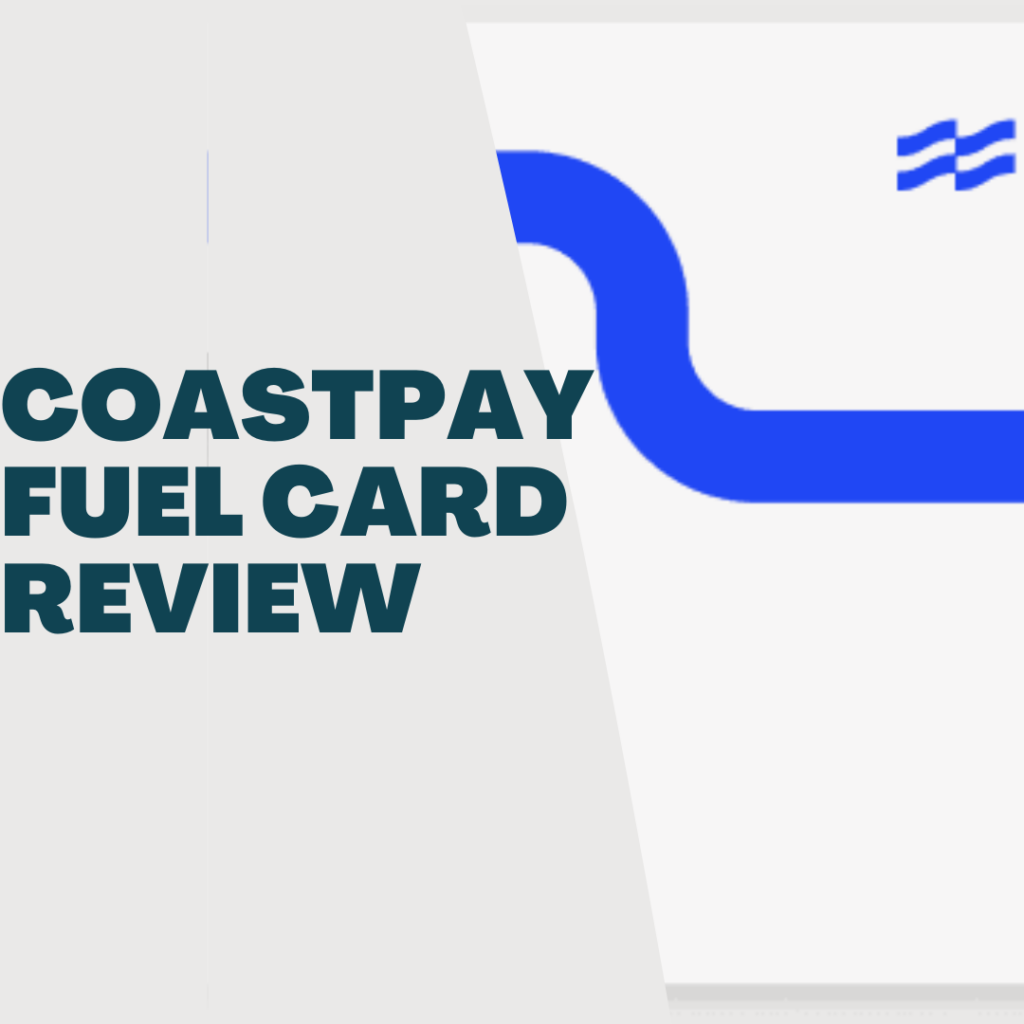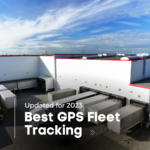As the owner of a commercial trucking company, you already know that logistics are at the heart of everything that you do. Each decision that you make is based on ensuring that your trucks can cover as much ground as possible while still operating within the framework of the law. Whether you have a small fleet of two or three trucks, or a massive fleet made up of dozens, the need for GPS fleet tracking doesn’t change. Understanding the importance of tracking your trucks, knowing where they’re going, where they’re at and more is one of the most vital components to the long-term success of your trucking company.
What Is GPS Fleet Tracking?
There are two components to a GPS fleet tracking system. The first part is the tracking device that actually goes inside the truck while the second component is the tracking software that you rely on to keep track of the location of your trucks.
GPS technology isn’t exactly new. For years, people have been able to buy GPS devices to use in their residential vehicles in order to direct them to where they’re going. This technology relies on a system of satellites that can track the device virtually anywhere on the surface of the earth. The GPS satellite tracking system is made up of 31 satellites that can track any GPS device with approximately 7.8 meter accuracy. The satellites carry atomic clocks that provide an accurate time which is relayed back to the satellites to indicate where the device is on the map at any given time.
GPS fleet tracking operates on the same network of satellites to help commercial trucking owners keep track of where their trucks are located. Once you have the tracking device installed in your trucks, their location is fed to the satellites which then relay the information to the software that you rely on to stay updated as to where your drivers are.
How Does GPS Fleet Tracking Work?
The device that is installed in your trucks emits a signal back to the satellite to indicate exactly where the truck is at any given time. Depending on the software that you choose (more on that in a minute), the signal is fed to the satellite in pre-determined intervals. In most cases, your home-base software will get an update on the location of any of your trucks every 10 seconds or so. These regular updates ensure that you know exactly where your drivers are and can ensure that your company is operating according to your plan.
Benefits of GPS Fleet Tracking
If you are going to operate a commercial trucking company, GPS fleet tracking is a must-have. Whether you have one truck or a dozen, you need to ensure that your drivers are going to the right place, picking up the right loads and are taking the most efficient route to their next destination.
GPS Fleet Tracking and Vehicle Efficiency
With the cost of fuel being as high as it is, it’s crucial that you maximize the fuel that keeps your trucks on the road. One of the most important benefits of GPS fleet tracking is the fact that you can get a better handle on your fleet’s fuel economy.
When any of your trucks spend an excessive amount of time idling, they are wasting fuel. While there will obviously be times where your drivers leave the truck running while they are not on the road, GPS fleet tracking ensures that these idle times are not costing you money. Understanding logistics goes well beyond simply knowing what route your drivers are taking. Understanding the optimal speed of your trucks and the impact that their speed has on fuel mileage is every bit as important. Idle time isn’t the only time that your trucks can waste an excessive amount of fuel. If your drivers are operating your trucks at a high rate of speed, they also burn more fuel than is necessary. In virtually every case, this increased speed doesn’t increase productivity enough to make it worth your added fuel cost.
Being able to monitor your trucks with several updates every minute ensures that you are keeping a firm grasp on vehicle efficiency. Every GPS fleet tracking system allows you to monitor fuel efficiency by allowing you to track the following metrics.
• Amount of idling time
• Speed
• Engine performance
• Emissions
• Fuel efficiency
GPS Fleet Tracking and Driver Safety
One of the most important aspects of being a responsible business owner is ensuring the safety of all of your employees, including your drivers. Since there is no way for you to be with every driver on your company’s payroll at all times, there needs to be a way for you to monitor your drivers in order to better protect them. Not only is driver safety a moral component of operating a business ethically, but it also helps protect your bottom line. Drivers who operate safely are less likely to be involved in accidents which can increase your commercial trucking insurance rates, land your company in the middle of a lawsuit and may result in expensive workers’ compensation claims.
GPS fleet tracking allows you to identify any drivers in your fleet who may be driving at unsafe speeds. Since there are regulations in place that dictate how many hours a commercial trucker is allowed to drive each day, many drivers are tempted to drive fast in an effort to log as many miles as possible. While you may consider putting governors on the engines of your fleet in order to set a maximum speed, that only solves part of the problem and may actually create other issues. For instance, a trucker who is driving through a busy metropolitan area may need to drive 35 MPH in order to be driving safely. However, a driver who is making his or her way across the flatlands of many Midwestern states may be able to safely operate his or her truck at speeds closer to 65 MPH. Instead of putting a governor on the truck that keeps those flatland drivers at a maximum speed of 60 MPH, a GPS tracking system allows you to trust the drivers to use their own judgment while still giving you the power to monitor their rate of speed.
Additionally, GPS tracking can help you keep an eye on your drivers in the event they are involved in an accident or a carjacking. According to studies, there are roughly 500,000 commercial trucking accidents every year. Sadly, approximately 5,000 of those accidents result in the death of a driver. If one of your drivers is involved in a serious accident, he or she may not be physically able to call for help. Having a GPS tracking system in place on their trucks ensures that someone who is tracking those trucks can get your drivers the help that they need.
GPS tracking also helps protect your drivers in the event that they are robbed. While it’s hard to imagine someone attacking a driver in an effort to steal their cargo, it’s a very real threat that some commercial trucking owners know all too well. A study published in 2019 discussed crimes against commercial trucks in 2018. In 2018, there were 342 stolen commercial vehicles that resulted in more than $29 million in losses. Some types of cargo were more targeted than others, with food, building supplies, appliances and electronics being the most heavily targeted. In order to better protect your drivers from violent crimes, a responsible commercial trucking owner will install GPS tracking that can ensure that their drivers and their cargo are monitored at all times.
Keeping Drivers Responsible
Telematics, which is the term used for commercial GPS tracking, monitors much more than driver location. You can also keep an eye on the number of hours that your drivers are operating each day, their speed, hard braking incidents, and erratic driving behaviors. Not only does monitoring these behaviors help protect your drivers, but it also protects your company. While drivers can be cited and fined for speeding, after hours driving and other violations, there may also be fines issued to your company for the same violations. A good GPS fleet tracking system is an investment in the financial security of your company.
Choosing a GPS Fleet Tracking System
There are certain features that you should look for when trying to choose a good GPS fleet tracking system. The most obvious feature is the ability to monitor driver location, speed, idle time and other truck-specific metrics. You should also choose a tracking system that offers an easy-to-use interface. This ensures that the person who is responsible for tracking your fleet can easily use the system in order to keep an eye on your fleet. Finally, you should choose a tracking system that offers a reliable alarm system. You can choose what sort of alarms you receive, so these alerts allow you to be notified about excessive speed, accidents, theft and much more.
The Best GPS Fleet Tracking Systems
While there are plenty of great GPS fleet tracking systems on the market, we believe that these are some of the best:
Verizon Connect
You get your first two months for free when using Verizon Connect, but are then required to sign a three-year contract in order to keep the service. The easy-to-use interface relies on Verizon’s mapping system to provide a nearly constant location of your entire fleet. According to their website, trucking companies who installed Verizon Connect in their fleet saw a 15% increase in productivity and an 87% decrease in their accident rate. Verizon Connect provides data on all of the metrics that you need in order to maximize the productivity of each truck.
GPS Trackit
According to their website, companies who signed up for GPS Trackit started seeing a positive return on their initial investment within 30 days of installation. GPS Trackit not only provides location services and a constant data stream for your entire fleet, but the system also includes tamper-proof dashboard cameras that allow you to see clear footage of how close your drivers are getting to other vehicles and monitor other driving habits. The GPS Trackit website claims that their system produced a 30% increase in miles per gallon for companies who chose their system.
Geotab
Geotab was named the number one commercial telematics company in the industry by ABI Research. While the price that you pay for your system may vary based on the reseller that you choose, Geotab is one of the more affordable choices on the market. That fact is even more remarkable when you realize the number of features that Geotab includes. Instead of providing a standard set of telematics monitoring, Geotab allows you to customize the features that you implement, giving you the freedom to monitor whatever metrics you choose.
Quartix
With more than two decades of telematics experience, Quartix is one of the most tenured options on the GPS fleet tracking market. Every month, more than 400 companies choose Quartix, which has pushed them to more than 600,000 total installations in the last 20 years. Quartix allows you to monitor driver start time, speed, idle time and more, ensuring that your entire company is operating as efficiently as you want it to.
Samsara
Samsara provides more than the location and speed of your drivers. You can also integrate a camera that monitors the windshield as well as a camera that focuses on your driver. No matter how well you screen your employees, there is always the chance that you get a driver who decides to be careless in the cab, uses his or her cell phone while driving or commits other violations. Samsara allows you to monitor everything going on in your fleet, inside and outside the truck.
Spend some time researching your options when you’re considering the GPS fleet tracking system that you’re going to install in your truck. This investment can help ensure that your company is operating both safely and efficiently.














